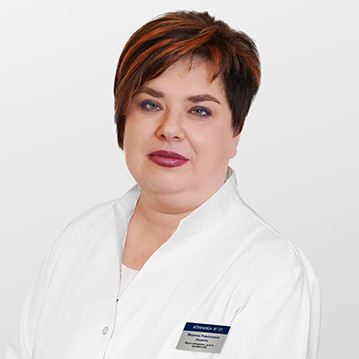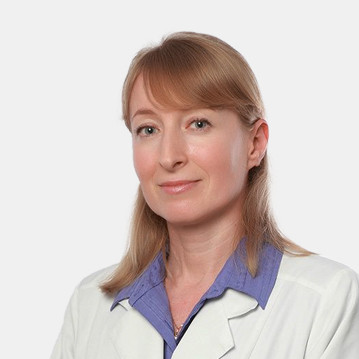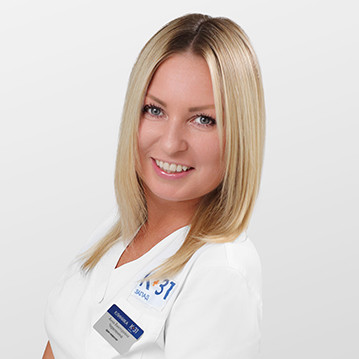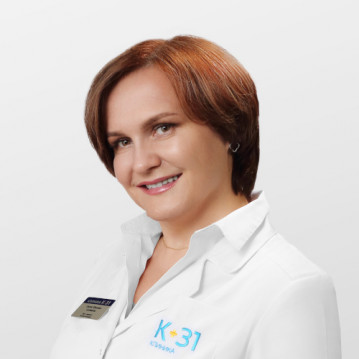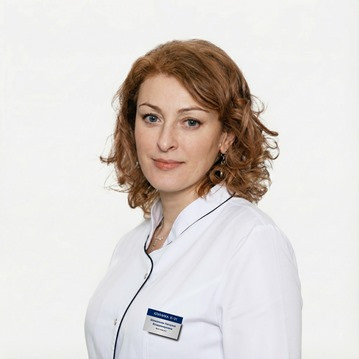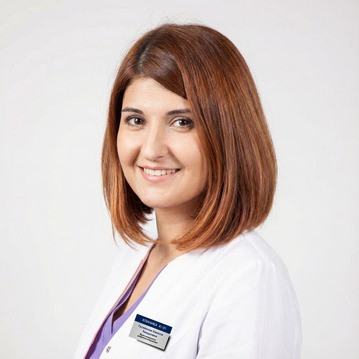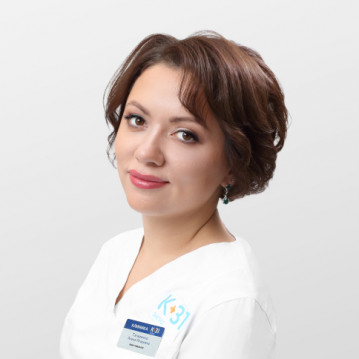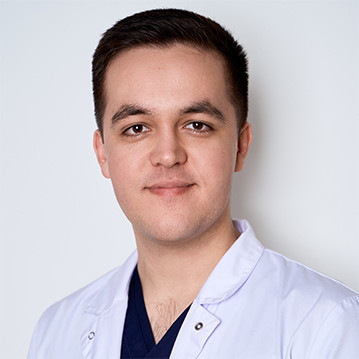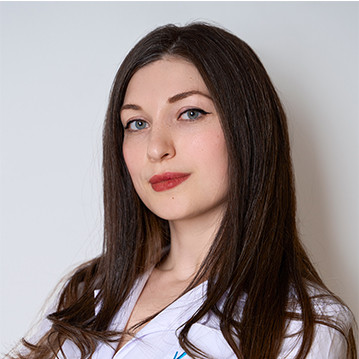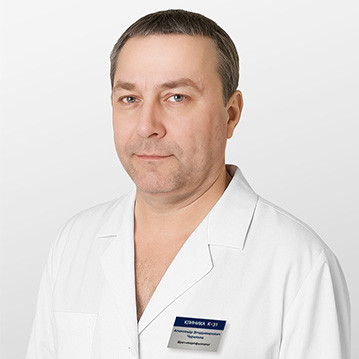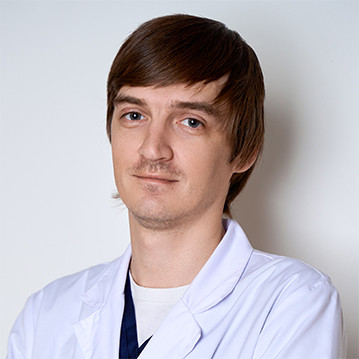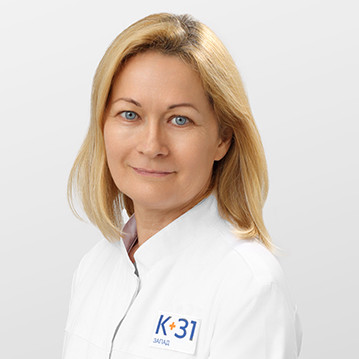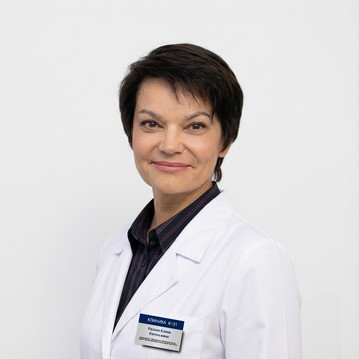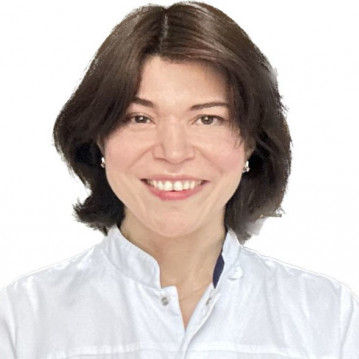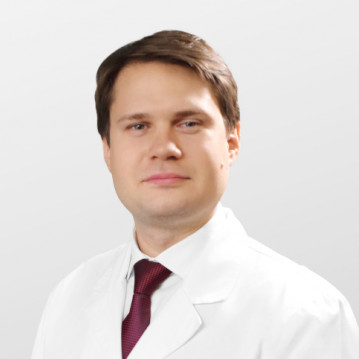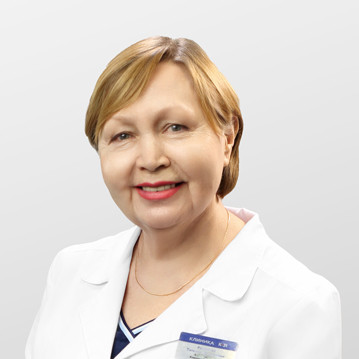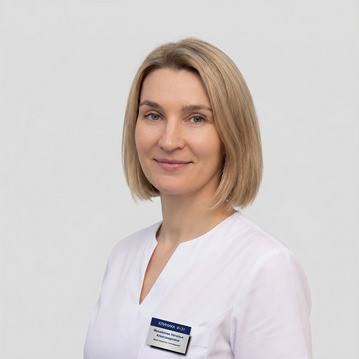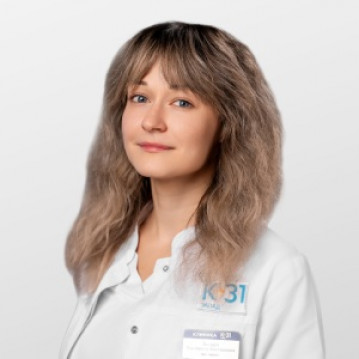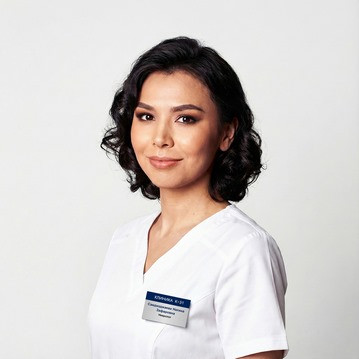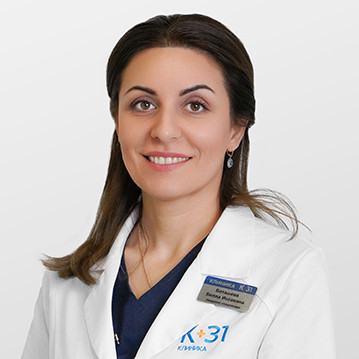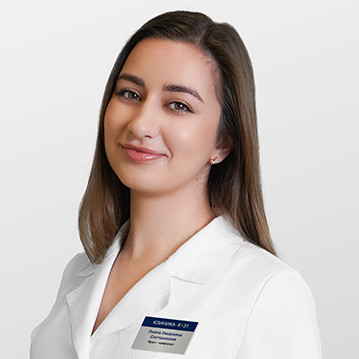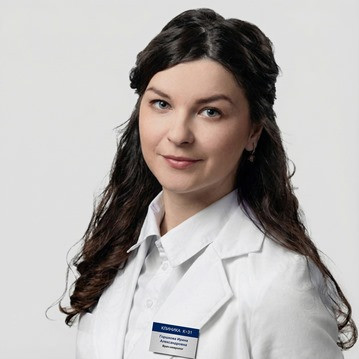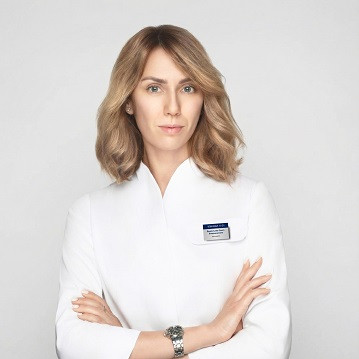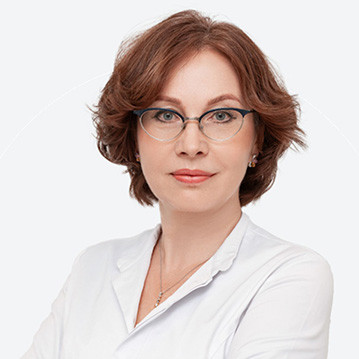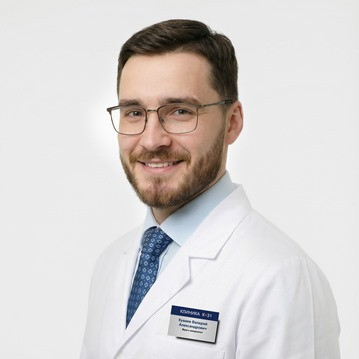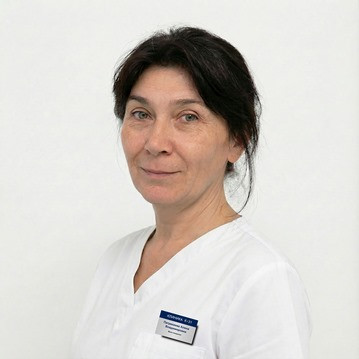Stroke risk factors
The main risk factor for all types of stroke is arterial hypertension (it increases the likelihood of a stroke by about 5 times). FR stroke are also smoking (increases the risk of stroke by 2-4 times), diabetes mellitus (increases the risk by 2-4 times), atrial fibrillation (increases the risk by 3-5 times), overweight, hyperlipidemia, and blood diseases - polycythemia, thrombocytosis.
Transient cerebrovascular accident (transient ischemic attack - TIA)
Transient cerebrovascular accidents (transient ischemic attacks - TIAs), in contrast to stroke, are characterized by a regression of neurological symptoms within 24 hours. The clinical significance of TIAs lies in the fact that they serve as a harbinger of stroke and represent danger signals that require a quick diagnostic and therapeutic action from the doctor. TIA has to be differentiated with other paroxysmal conditions: an epileptic seizure, fainting, migraine, demyelinating condition, hypoglycemia, hysteria.
Causes
Neurologists of our center always strive to establish the cause of TIA and stroke:
- Stenosing lesions of large extracranial and intracranial arteries.
- Heart disease, blood.
- Stratification of the cerebral arteries (about 2% of cases of stroke, but in young people it accounts for 10-20% of cases of stroke).
- Vasculitis.
- Antiphospholipid syndrome.
- Venous thrombosis.
- Side effects of oral contraceptives.
- AIDS.
- Neurosyphilis.
Diagnostics
Computed tomography performed during the first hours after an acute disturbance in the blood supply to the brain by specialists in radiation diagnostics at the K+31 Clinic Medical Center allows us to accurately differentiate ischemic and hemorrhagic foci in the brain. In some cases, additional data for the differential diagnosis of ischemic and hemorrhagic disorders of cerebral circulation can be obtained using MRI.
Diagnostic methods for cerebrovascular diseases carried out in the Clinic K+31 medical center:
- MSCT of the brain.
- MSCT of cerebral vessels with contrast.
- MSCT of the neck vessels with contrast.
- MRI of the brain (including intravenous contrast).
- MRI angiography of intracranial arteries.
- MR angiography of the neck vessels.
- Triplex scanning of extracranial (neck) and intracranial (head) sections of the brachiocephalic arteries with rotary tests.
- Optometrist consultation.
- Consultation of a cardiologist, endocrinologist.
- ECG, ECHO-KG, Holter monitoring of ECG and blood pressure.
- Clinical blood count with platelet count.
- Determination of blood glucose, fibrinogen, urea, creatinine, electrolytes, cholesterol, triglycerides and lipoproteins, bilirubin, transaminase activity, homocysteine.
- Serological tests for syphilis, HIV, lupus anticoagulant, antibodies to phospholipids.
Treatment of strokes and TIA
When a neurologist establishes a diagnosis of a stroke or TIA, the patient is urgently hospitalized in the neurovascular department for urgent medical measures.
Types of strokes, classification in neurology
Stroke of the brain (ischemic stroke) is a violation of cerebral circulation that occurs as part of a general or local lesion of the cerebral vessels against the background of diseases of the cardiovascular system. Ischemic stroke cannot be attributed to an independent pathology. Basically, the condition develops against the background of arterial hypertension, ischemia or heart defects, diabetes mellitus, and vascular accidents.
Ischemic stroke can develop against the background of cardiovascular pathologies of various origins, as well as be the result of various diseases of organs and systems.
Depending on the pathogenetic variant of the development of ischemia, there are:
- Cardioembolic - a brain catastrophe that occurred as a result of a heart attack, valvular heart disease, arrhythmias of various courses.
- Ischemic attack of unknown origin (idiopathic) - a stroke developed for unclear reasons.
- Lacunar - arising due to the closure of small arteries of the brain.
- Atherothrombotic - the basis of the pathological process is the blockage of large arteries by a thrombus against the background of atherosclerosis.
- Rare causes of cerebral stroke associated with blood hypercoagulability, vasculopathies not associated with atherosclerotic changes, anomalies of arterial highways, dissection of arterial walls, and others.
Clinicians distinguish small stroke - a prognostically favorable form of ischemic attack of the brain with regression of symptoms in the first 2-3 weeks after the episode. According to the depth of development, there are transitory and completed.
According to the periods of flow, there are:
- Acute - develops in the first three days. There is a term here called "therapeutic window", which lasts only 3 hours. In this period, thrombolytic drugs can be used and the prognosis for recovery can be improved. If the symptoms disappear within a day, they talk about a transient ischemic attack.
- Acute - up to 3.5-4 weeks. The intensity of the symptoms is already subsiding.
- Early rehabilitation - duration up to 6 months.
- Late recovery period - lasts up to two years.
- Residual manifestations - from two years or more.
Clinical manifestations may depend on many factors: clinical history, age, previous vascular accidents, and others.
Given that ischemic stroke is a type of cerebral catastrophe, its onset is sudden, and manifestations of cerebral symptoms can persist rapidly, persist for a day or more, and cause rapid death.
Etiology, risks, pathogenesis
Ischemic stroke of the brain is not considered a separate disease, so it is impossible to determine any one cause in the occurrence of pathology. Rather, it is a complex of factors that can trigger the development of a cerebral infarction:
- Cardiovascular accidents.
- Hypertensive disease.
- Arrhythmia, including its malignant forms.
- Diabetic disease.
- Dyslipoproteinemia is a hereditary pathology of synthesis, catabolism and evacuation of lipoproteins and lipids.
- Latent lesion of the carotid arteries.
In the risk group are patients with aggravated heredity, in old age, with a low level of physical activity, high stress, prolonged psycho-emotional overstrain. Doctors register a high incidence of stroke in patients with alcoholism, overweight, and smokers.
Stroke treatment
If an ischemic stroke is suspected, urgent hospitalization in a specialized department is necessary. If symptoms occur less than 4-6 hours, then the patient is placed in the ICU (resuscitation and intensive care unit). Hospitalization may be contraindicated and is considered from the existing terminal coma, advanced cancer, dementia.
Non-drug correction includes proper patient care, restoration of simple functions, and prevention of infections.
In the acute period, therapy is most effective. Doctors select a set of drugs that can bring back to life and prevent the development of irreversible consequences.
With low indicators of the patient's life, as well as with a decrease in the level of consciousness of less than 8 points, tracheal intubation is required.
Planned therapy is aimed at restoring and maintaining hemostasis, the main functions of the body's vital functions. The measures are also aimed at restoring the water and electrolyte balance, reducing cerebral edema, and preventing complications.
There is also a surgical protocol for the treatment of ischemic stroke, which consists in operational decompression - reducing intracranial pressure, maintaining cerebral blood flow. In ischemic stroke, it is possible to compare the mortality rate to 50-30% with timely treatment.
Consequences and complications of a stroke
In patients who have had a stroke of the brain, there are several groups of typical disorders:
- Brain damage covers the volitional sphere, inhibits motor and cognitive functions. There is a defect in speech, will, vision, sensitivity, sexuality are reduced. Disorders of the nervous sensitivity of the pelvic organs are not uncommon, which leads to spontaneous urination, bowel movements.
- Loss of full service. The patient's gait is disturbed, there are no skills of self-criticism.
- Oppression of social function. The patient ceases his function in society due to restrictions. Now the skills for a new life are being formed.
- Frequent complications of stroke are swelling of the brain tissue, infectious pathologies, mainly of the lungs, and allergic reactions to drugs.
- Hyperthermia. One of the serious complications is an increase in brain temperature. In this case, the doctor performs craniocerebral hypothermia - cooling the brain through the integument of the head.
Stroke prevention
In order to prevent a stroke of the brain, it is necessary:
- Timely treat diseases of organs, systems (acute, chronic).
- Avoid nervous strain, stress.
- See your doctor for hypertension, previous or existing heart disease.
- Prevention of atherosclerosis.
- Lead a healthy lifestyle - avoid smoking, alcoholic beverages.
Clinicians note susceptibility to stroke in people with kidney disease, vitamin C, D, B deficiency.
Features of stroke in the elderly
Age-related changes are an important factor in the development of acute vascular accidents. Almost 80% of older people suffer from arterial hypertension, have thinned vessels, dilated lumens. It is in this category of patients that strokes are most severe. There are several main aspects:
- Reducing the mass and volume of the brain - the result of thinning of the meningeal membranes of the brain.
- Age-related atrophy of neurons is a consequence of degenerative changes in the white matter of the brain.
- Inhibition of neuronal functions is the result of water and electrolyte balance of various etiologies.
- Reduction of the blood-brain barrier - pathogenic changes in the meninges.
Almost 75-80% of stroke cases occur in patients over 60 years of age. The main feature of age-related brain stroke is the difficulty in the irreversibility of cognitive functions. It is difficult for the elderly and old people with concomitant diseases to find effective therapy.
Caring for a person after a stroke
There is a whole range of recommendations for caring for patients after a stroke, but there are a number of typical ones:
- Systematic monitoring and assessment of the degree of the body's needs for current disorders.
- Organization of sleep, rest, consistency in therapy.
- Daily assessment of the state of the body - measurement of blood pressure, temperature, examination of the skin, assessment of secretions and psycho-emotional background.
- Protective mode - the exclusion of infections, stress, unpleasant news.
- Compliance with an individual scheme of observation, supportive treatment.
If there is a deterioration in well-being, you should immediately consult a doctor. If necessary, hospice specialists, boarding houses with round-the-clock medical supervision should be involved.
Sources
- Clinical neurology with the basics of medical and social expertise. SPb.: LLC "Medline-Media" – 2006.
- P.A. Fadeev. Stroke. – M.: Peace and Education, Onyx – 2008.
- Solodov A.A., Petrikov S.S. Hyperosmolar solutions in the complex of treatment of patients with intracranial hemorrhages // Herald of intensive care – 2009.
